6 New Year’s Resolutions Every Heathen Should Make
Well, that title is a bit of click-bait, isn’t it? Seriously though, as Heathens looking into the upcoming new year, we do have oaths, resolutions, or at least, things we’d like to accomplish next year. This is why I’ve come up with six resolutions we, as Heathens, should make for next year. See if you agree with me.
Take Better Care of Yourself

You may think it’s odd for me to tell you to to be selfish and take care of yourself first, but that’s exactly what I’m telling you. Your resolution should be to care for yourself better than you have been caring for yourself. This means getting more sleep, more rest, better quality food, and exercise. Why? Because if you don’t take care of yourself, no one else will. And if you care for others, i.e., children, animals, elderly, disabled, or sick, who will take care of them if you become sick? No one.
So, you need to care for yourself, in order to care for others in your life. Eat organic foods and less junk food. Exercise at least three times a week, preferably more. If you do get sick, stay home and get well–go to the doctor, if necessary. There are people who depend on you to be on top of your game; you won’t be 100 percent if you’re tired all the time, sick, or out-of-shape.
Did you know that 50 percent of Americans’ diets consist of processed food on average? Yes. All the soft drink, frozen meals, breakfast cereals, desserts, canned foods, and prepackaged whatever isn’t necessarily healthy for you and takes you away from your Heathen roots. I encourage you to buy local foods, which have ties to the land you live in, and will sustain you better and taste better than the shit that comes prepackaged.
Learn a New Skill
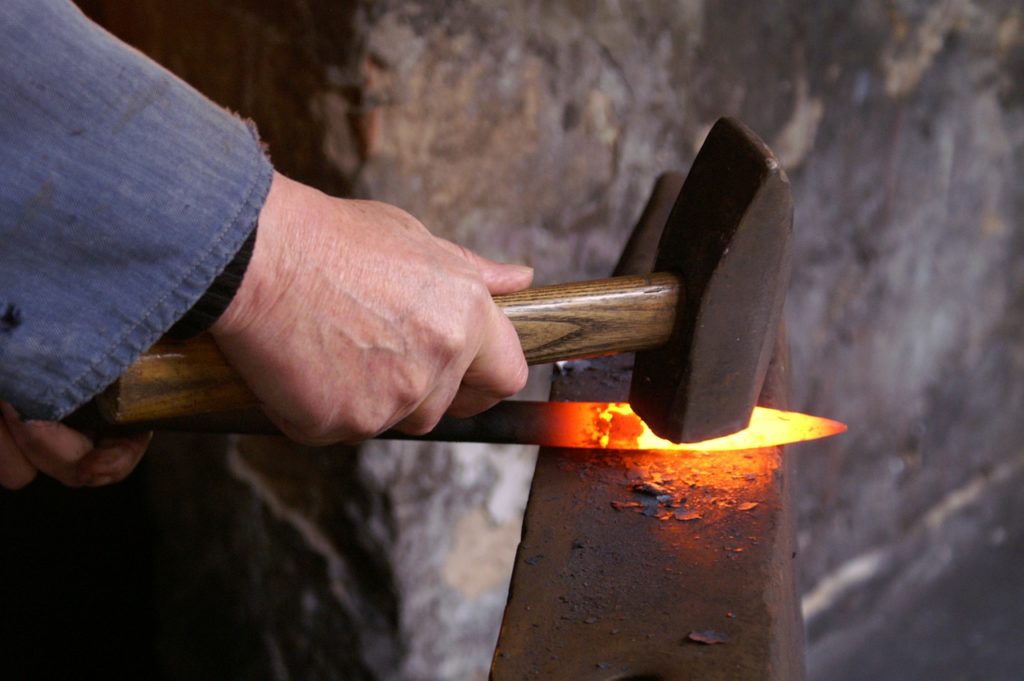
As Heathens, it’s important for us to keep our minds and bodies challenged. That means learning a new skill, whether it’s a new craft, a new language, a martial art, a musical instrument, or a new sport. Learning new things not only improves your mental function, it helps postpone the onset of dementia and Alzheimer’s disease. When we work on things that our ancestors did such as knife-making, hunting, knapping, leather tooling, farming, raising livestock, weaving, spinning, foraging, gardening, preserving food, and whatnot, you may find a greater understanding and link to the past.
Learn to Meditate

Meditation isn’t necessarily sitting cross-legged and saying “Ommm,” although you can do that, if you want to. Meditation is what is called “mindfulness,” which is being aware of your body and your surroundings. It’s being present within the moment.
Meditation allows you to pay attention to everything around you. It allows you to clear your thoughts and lower your heart rate. It allows you to reduce the stress in your life and your reaction to the stress. And it also enables us to forge a link between ourselves and the gods.
When we clear our thoughts, we open our minds to the gods and allow them to enter. Although they can overcome the constant chatter of our busy minds, they don’t like having to do that. Tyr, I know, isn’t thrilled with dealing with the chaotic “monkey mind” that we all have. He’ll do it when he has to, but he prefers an ordered mind. Loki, on the other hand, is great with distractions.
One good book worth considering is Meditation for Fidgety Skeptics. There are other good meditation books as well, so if you’d like other referrals, I can provide them.
Get Outdoors More Often

It’s all too common for humans to become “box people,” as one friend used to call people who never stepped foot in nature. These people went from climate-controlled homes to climate-controlled cars to a climate-controlled workplace, and back again. They had safely encapsulated themselves in boxes that didn’t challenge them. Oh sure, they might enjoy a nice day outside during lunch or on the weekend, but rain, snow, wind, heat? No way.
It’s ridiculously easy becoming maudlin about nature from the 10th story of a high rise, or even on the manicured lawns of suburbia. When you’re out in it, you have to learn what nature requires you to do. That means planning and preparing to be out with it. The wild is not a kind mistress — some areas are downright dangerous for the unprepared. Heathens need to go to those places –wild and natural places–where there is both beauty and danger, and know what to do. I’m not telling you to risk your life, by any stretch; I’m asking you to claim what is your birthright as a creature of this Earth. This requires knowledge, preparation, and skill.
If you’re not ready for a wilderness experience, you need to start small. Go to a park and enjoy the grass underfoot and the trees overhead. Watch the animals, however tame they may act around humans. Take walks more outside. Pay attention to your surroundings. Read about places you’d want to visit and go there when funds are available. In the meantime, learn the national forests and parks in your area. Learn about the wildlife. Become a hunter and angler. The more you learn about nature, the better that knowledge will serve you as a Heathen.
Learn More About Your Ancestors

Love them or hate them, your relatives and ancestors say a lot about who you are. Without them, you would not exist. Whether you were adopted into your current family or whether the family who raised you were your actual birth parents, every Heathen should know where they came from. You should honor those ancestors whom you deem worthy of honoring. If you have no recent ancestors whom you feel are worthy of reverence, that’s okay. Go back further, or choose to honor more distant ancestors in general. Not all of them can be assholes.
Even if you can’t go back very far in your lineage, knowing and understanding the people whom your ancestry belongs to is a good idea. Why? Because you can add and incorporate customs, gods, and practices into your beliefs and honoring. That way, it becomes something more personal to you.
If you’re adopted, honoring the ancestors of your adopted parents can also bring meaning as well. After all, they chose you to be part of their family and kindred. Remember, we’re talking ethnicity here, and not race, because race is a construct. We’re all humans, which means if you were raised Swedish, even if your birth parents might have been Anglo Saxon, you’re Swedish in ethnicity, if not birth.
Learn More About Our Gods and Our Past

As Heathens, it’s important to read the Eddas, stories about our gods, and important literature that has made up much of what we know about the Heathens who came before us and Heathenry. Learning how to translate and read old manuscripts is a part of it, certainly, but even if you can’t pony up for a course in Old Icelandic, Old Norse, or Anglo Saxon, just reading the translated stories will provide richness to your life and your beliefs. It’s a good idea to do your own research and formulate your own thoughts–lots of recon wankers will tell you what to believe because they have a “theory.” Trust me, you can decide for yourself.
I hope you’ve enjoyed this post on resolutions. If you did, consider buying me a coffee for my hard work. See you here in 2019. May you have a wonderful and safe New Year!

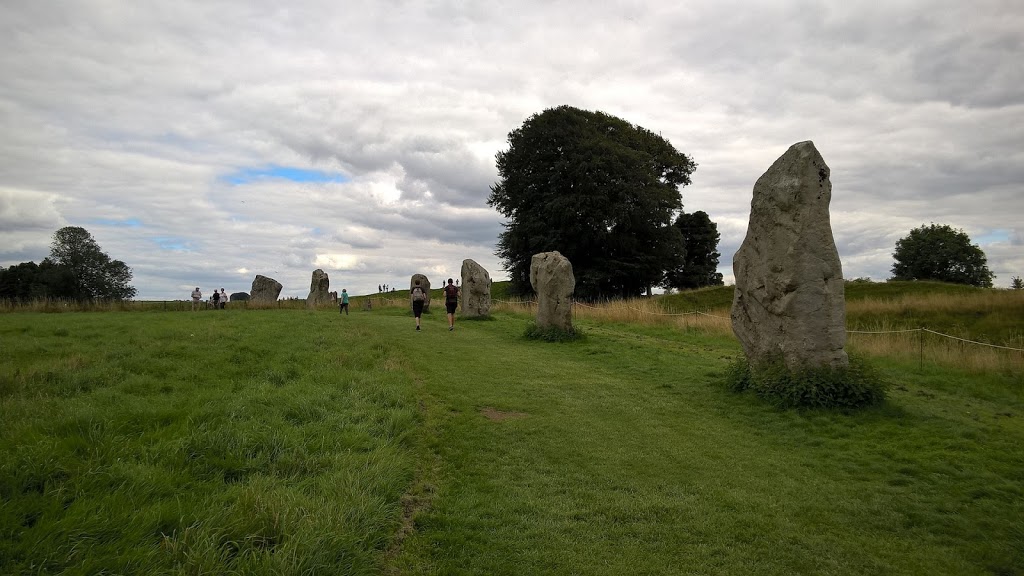
 Before I get into the supposition that the gods are with us, let me address the personal nature of the gods, themselves. There are Heathens who believe that our gods really aren’t personal deities. That the concept of a personal deity comes from Christianity and those concepts taint our modern day beliefs.
Before I get into the supposition that the gods are with us, let me address the personal nature of the gods, themselves. There are Heathens who believe that our gods really aren’t personal deities. That the concept of a personal deity comes from Christianity and those concepts taint our modern day beliefs. 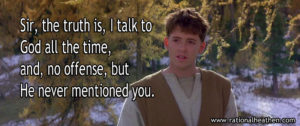 These aforementioned gods that have very little to do with humanity are not the gods I am talking about. The gods I am talking about are the gods who have made themselves known to humans. Who still make themselves known to humans. Odin, Thor, Freyja, Freyr, Tyr, Loki, Baldr, Skadi, Ullr, Heimdallr,…the list goes on. We would not know them if we did not have contact with them. Sure, you could say that hearing thunder and calling it a god is the basis for Thor, but then, why bother to have positive connotations with a thunder god if he didn’t somehow look benevolently on humans?
These aforementioned gods that have very little to do with humanity are not the gods I am talking about. The gods I am talking about are the gods who have made themselves known to humans. Who still make themselves known to humans. Odin, Thor, Freyja, Freyr, Tyr, Loki, Baldr, Skadi, Ullr, Heimdallr,…the list goes on. We would not know them if we did not have contact with them. Sure, you could say that hearing thunder and calling it a god is the basis for Thor, but then, why bother to have positive connotations with a thunder god if he didn’t somehow look benevolently on humans? are reserved and only show up at times they deem is suitable. They seldom come when you call –remember, they’re not your bitches. Even if you ask nicely, you can get complete crickets. They may have more important things to pay attention to. Like the entire universe.
are reserved and only show up at times they deem is suitable. They seldom come when you call –remember, they’re not your bitches. Even if you ask nicely, you can get complete crickets. They may have more important things to pay attention to. Like the entire universe. benevolent intentions, you should definitely get a name or an understanding of who or what they are. They shouldn’t be passing themselves off as a god. If they are, I wouldn’t want to deal with them simply because of the dishonesty.
benevolent intentions, you should definitely get a name or an understanding of who or what they are. They shouldn’t be passing themselves off as a god. If they are, I wouldn’t want to deal with them simply because of the dishonesty.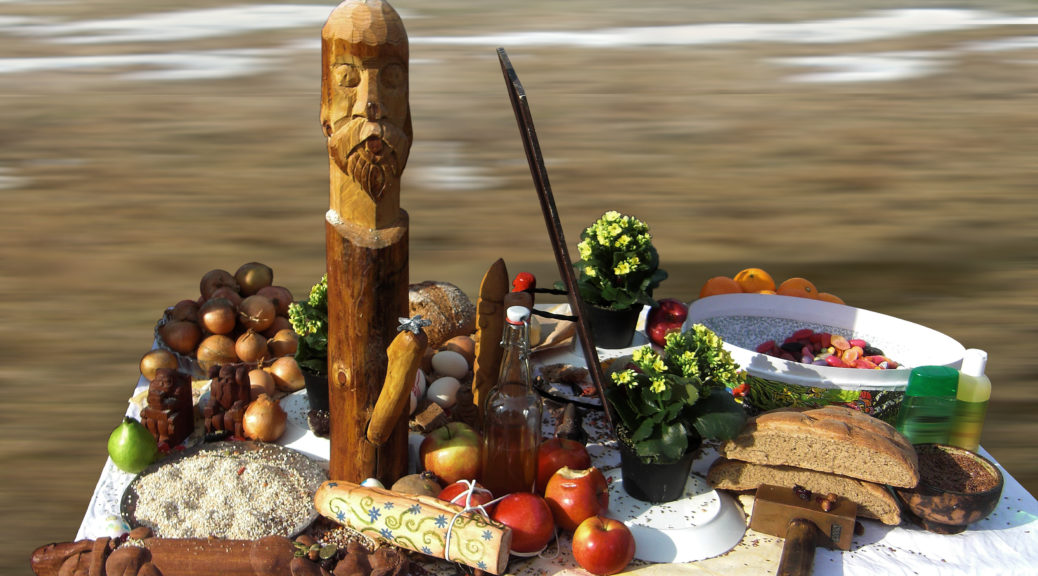
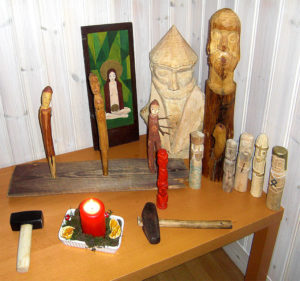 It’s been about six years since Tyr and Thor first entered my life as Norse gods and I’ve entered Heathenry. (Tyr has been in my life for years, only I didn’t recognize him.) I’ve been thankful they’ve done so because they’ve offered a a new perspective on my life that I had not gotten any other way. I still deal with a number of really stupid issues due to Christianity that I brought with me, but I can feel a certain amount of healing going on that I just didn’t have with the other religions, and lack of religion.
It’s been about six years since Tyr and Thor first entered my life as Norse gods and I’ve entered Heathenry. (Tyr has been in my life for years, only I didn’t recognize him.) I’ve been thankful they’ve done so because they’ve offered a a new perspective on my life that I had not gotten any other way. I still deal with a number of really stupid issues due to Christianity that I brought with me, but I can feel a certain amount of healing going on that I just didn’t have with the other religions, and lack of religion.
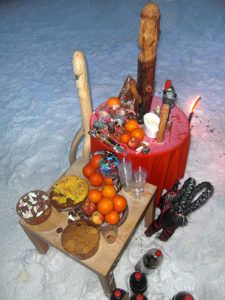 I’ll say it right up front that those who claim to “know” how Heathenry should be is full of shit. Sure, we have some good ideas how some of our ancestors practiced Heathenry, but overall,
I’ll say it right up front that those who claim to “know” how Heathenry should be is full of shit. Sure, we have some good ideas how some of our ancestors practiced Heathenry, but overall,  Even if we somehow magically figured out everything about Heathenry in the ancient times, would we really want to mimic it? If you say “yes” then apparently you want to bring back human sacrifice, and
Even if we somehow magically figured out everything about Heathenry in the ancient times, would we really want to mimic it? If you say “yes” then apparently you want to bring back human sacrifice, and 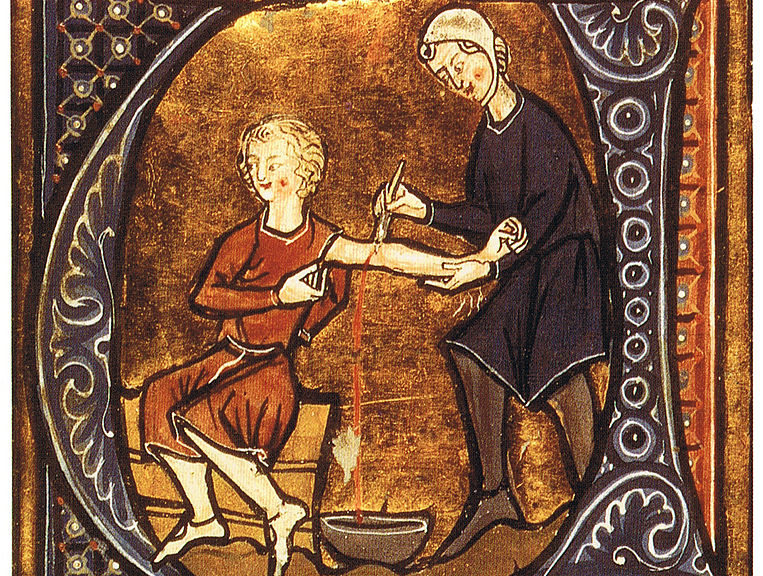
 This spring I had a lesson on why the good old days weren’t that great. Having dealt with the realities of raising livestock, I’ve become far more appreciative of modern medicine, and science, in general. Not that I wasn’t appreciative of science to begin with, but when you see it in action, it changes your worldview. And you start to realize just how tough our ancestors had it then. You also realize how unlikely it was to see 50 years old back then.
This spring I had a lesson on why the good old days weren’t that great. Having dealt with the realities of raising livestock, I’ve become far more appreciative of modern medicine, and science, in general. Not that I wasn’t appreciative of science to begin with, but when you see it in action, it changes your worldview. And you start to realize just how tough our ancestors had it then. You also realize how unlikely it was to see 50 years old back then.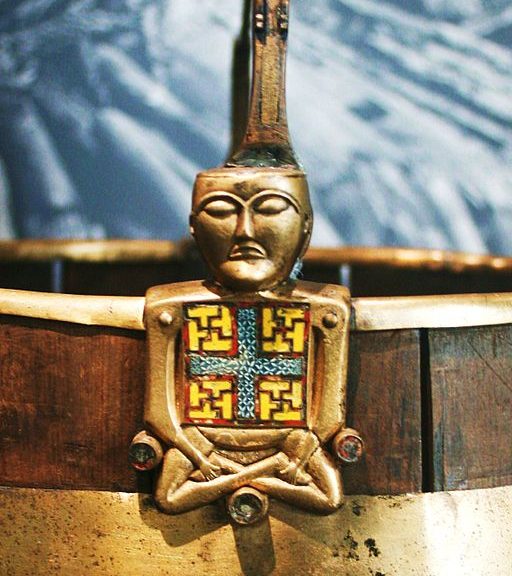
 Once again, I’ve stumbled onto some really big bullshit about arch heathens, so I think it is time to make my opinions known on the subject. Arch heathens, if you get the current vernacular, were an impressive, idealized version of the Heathen. Sort of an uber Heathen, as it were. These purported arch heathens kept the faith pure and knew some sort of unwritten code of conduct across the ancient world that spanned from Greenland to Russia and south into Africa, and across several thousands of years ago, ending with the conversion to Christianity. They were of one mindset and kept the faith pure. (Ein volk! Ein reich! Ein führer!) <– That was sarcasm for those who don’t recognize it.
Once again, I’ve stumbled onto some really big bullshit about arch heathens, so I think it is time to make my opinions known on the subject. Arch heathens, if you get the current vernacular, were an impressive, idealized version of the Heathen. Sort of an uber Heathen, as it were. These purported arch heathens kept the faith pure and knew some sort of unwritten code of conduct across the ancient world that spanned from Greenland to Russia and south into Africa, and across several thousands of years ago, ending with the conversion to Christianity. They were of one mindset and kept the faith pure. (Ein volk! Ein reich! Ein führer!) <– That was sarcasm for those who don’t recognize it.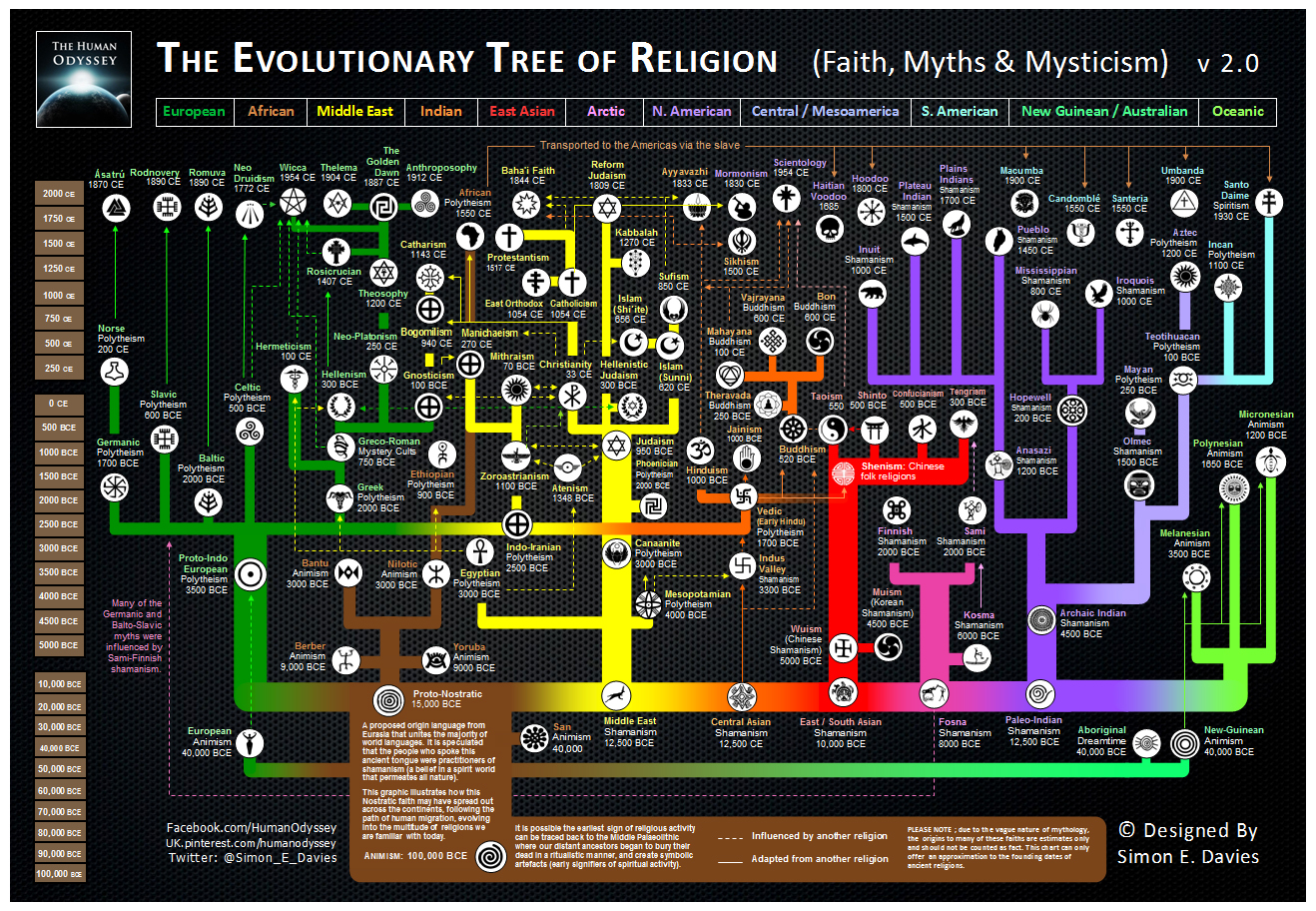
 guy who was in Germany at 1700 BCE? Are we talking about the guy back in 3500 BCE wherever the Hel he was? Or are we talking about the Viking arch heathens? And which Vikings? Are we talking Iceland or Russia? Maybe Sicily? Or France? How about North Africa?
guy who was in Germany at 1700 BCE? Are we talking about the guy back in 3500 BCE wherever the Hel he was? Or are we talking about the Viking arch heathens? And which Vikings? Are we talking Iceland or Russia? Maybe Sicily? Or France? How about North Africa? have pinpoint accuracy with historical writings or archaeology. A lot goes on in 200 years in cultures. Don’t believe me? Look back 200 years in our recent past. In 1818, we had no car, no electricity, and the United States had only 20 states. Too modern? Okay, let’s compare 1818 with 1618. Jamestown was founded in 1607 and by 1618 there were a handful of new settlements. People still believed in persecuting witches then. Ships were pretty much wind driven. The Mauritius sailed in 1618. In 1818, we were working on the cusp of the Industrial Revolution with steam engines and steamboats. In 1810, England had its first primitive railroad. By 1827, we had the first railroad in the United States. The 30 years war started in 1618 started by the Jesuits against the Protestants. By 1818, the United States had freedom of religion in place in the Constitution.
have pinpoint accuracy with historical writings or archaeology. A lot goes on in 200 years in cultures. Don’t believe me? Look back 200 years in our recent past. In 1818, we had no car, no electricity, and the United States had only 20 states. Too modern? Okay, let’s compare 1818 with 1618. Jamestown was founded in 1607 and by 1618 there were a handful of new settlements. People still believed in persecuting witches then. Ships were pretty much wind driven. The Mauritius sailed in 1618. In 1818, we were working on the cusp of the Industrial Revolution with steam engines and steamboats. In 1810, England had its first primitive railroad. By 1827, we had the first railroad in the United States. The 30 years war started in 1618 started by the Jesuits against the Protestants. By 1818, the United States had freedom of religion in place in the Constitution.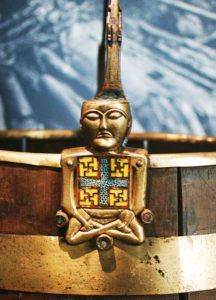 I’ve talked a lot about how Heathenry had been influenced by other cultures and religions. Our ancestors traveled — a lot! They had boats, they had horses, and yes, they had their own two feet. Heathens traveled east into Russia, south into Africa, and west into North America. They saw many different cultures and peoples — and they didn’t kill or conquer all of them. Many they traded with. We have found religious symbols from other cultures (such as the Buddha!) in gold hordes, and we know that Norsemen and Islam have had contact. Since Heathens were open to other forms of beliefs, even then, some aspects of other religions got adopted and incorporated as people from other cultures became assimilated into the Heathen culture.
I’ve talked a lot about how Heathenry had been influenced by other cultures and religions. Our ancestors traveled — a lot! They had boats, they had horses, and yes, they had their own two feet. Heathens traveled east into Russia, south into Africa, and west into North America. They saw many different cultures and peoples — and they didn’t kill or conquer all of them. Many they traded with. We have found religious symbols from other cultures (such as the Buddha!) in gold hordes, and we know that Norsemen and Islam have had contact. Since Heathens were open to other forms of beliefs, even then, some aspects of other religions got adopted and incorporated as people from other cultures became assimilated into the Heathen culture.
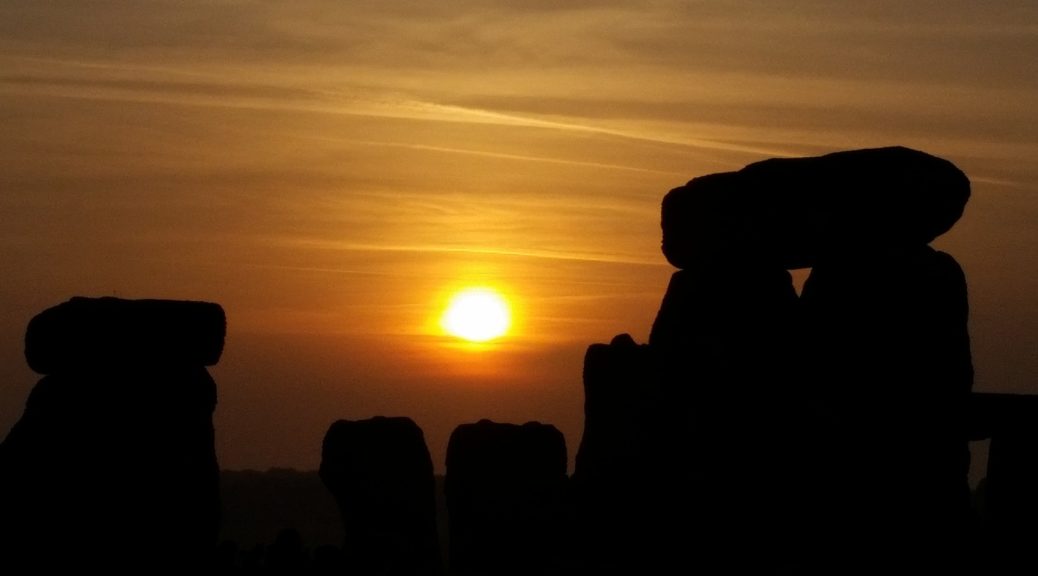
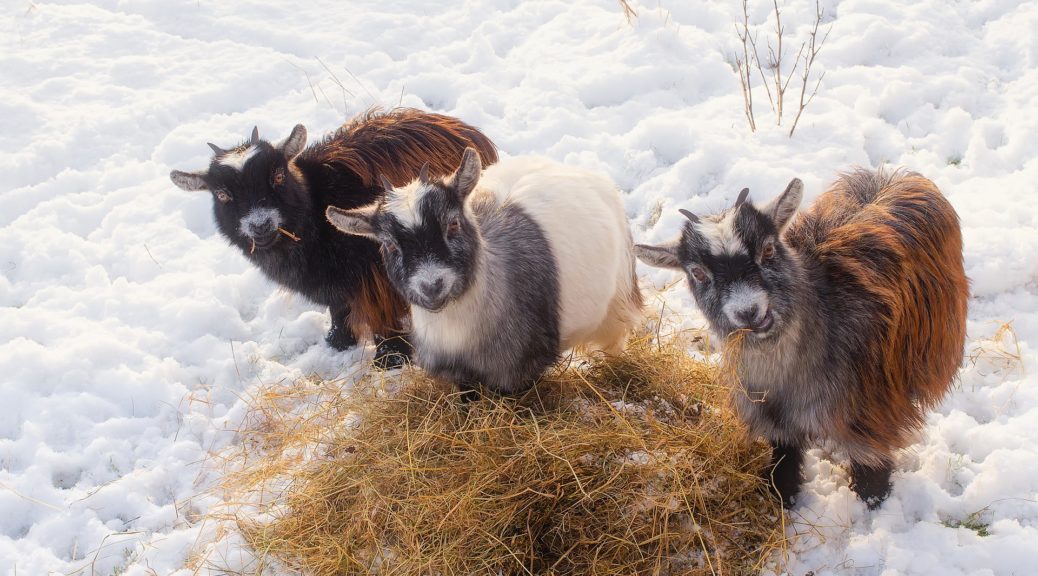
 Ah, the Heathen life. The Rational Heathen has goats, which means spring kids, and the insanity that brings. If they all had lived, I would’ve had ten Kids on the Block. Yeah, bad pun, deal with it. Right now, I’m down to seven and as bad as having a 30 percent attrition rate is, it beats out the really bad year when I lost all the kids due to various aliments.
Ah, the Heathen life. The Rational Heathen has goats, which means spring kids, and the insanity that brings. If they all had lived, I would’ve had ten Kids on the Block. Yeah, bad pun, deal with it. Right now, I’m down to seven and as bad as having a 30 percent attrition rate is, it beats out the really bad year when I lost all the kids due to various aliments.
 It’s Not Easy
It’s Not Easy

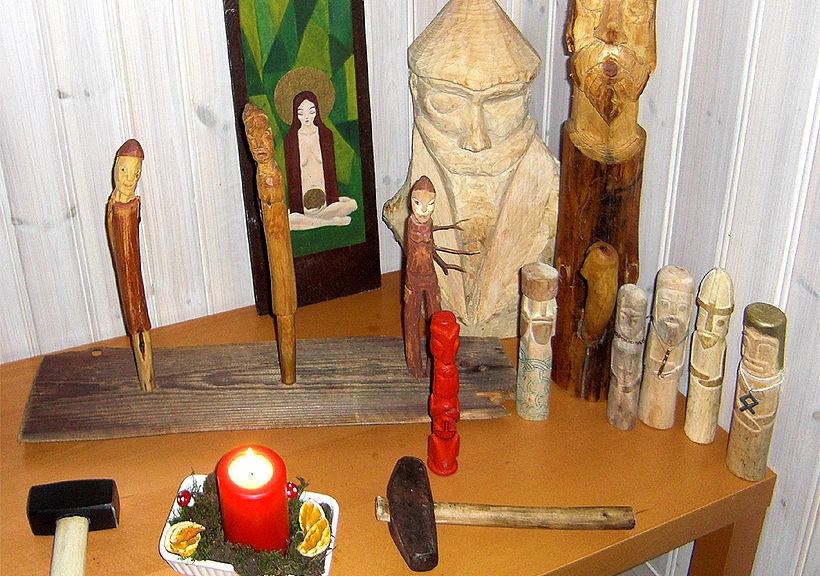

 I ran into an interesting post on Patheos entitled
I ran into an interesting post on Patheos entitled  they discriminated on religious beliefs, class, and political alliances. So if you were a Viking from Scandinavia who believed in the Heathen gods,
they discriminated on religious beliefs, class, and political alliances. So if you were a Viking from Scandinavia who believed in the Heathen gods,  You know, it’s okay to be introduced to the Heathen gods through Marvel, but if you’re becoming a Heathen because you find Tom Hiddleston or Chris Hemsworth sexy, maybe what you’re looking for isn’t a religion but a fan club. You shouldn’t worship Loki because you’re enamored with Hiddleston. Believe me, you aren’t the only one coming into the Northern religions because of the movies. The rest of us who are serious are going to sigh in disgust. We’re not a place for you to live out your fantasies when it comes to actors, so you might as well go someplace else.
You know, it’s okay to be introduced to the Heathen gods through Marvel, but if you’re becoming a Heathen because you find Tom Hiddleston or Chris Hemsworth sexy, maybe what you’re looking for isn’t a religion but a fan club. You shouldn’t worship Loki because you’re enamored with Hiddleston. Believe me, you aren’t the only one coming into the Northern religions because of the movies. The rest of us who are serious are going to sigh in disgust. We’re not a place for you to live out your fantasies when it comes to actors, so you might as well go someplace else. So, if you’re an alcoholic, or a borderline alcoholic, who wants to use Heathenry as an excuse to drink, go to rehab. Seriously. We need people who have their wits about them and not people who use Heathenry as an excuse to drink.
So, if you’re an alcoholic, or a borderline alcoholic, who wants to use Heathenry as an excuse to drink, go to rehab. Seriously. We need people who have their wits about them and not people who use Heathenry as an excuse to drink. I’m probably going to step on toes here, but if you’re using Heathenry just to dress up in cool clothing and armor, swing swords and carry medieval weapons, maybe you need to either be in an reenactment group or the SCA and not a Heathen. Certainly there are Heathens in reenactment groups and the SCA, and there’s no reason why they shouldn’t be there. The problem is when those people don’t take their Heathen beliefs seriously. Look, I get that there are atheist and agnostic Heathens out there, but they still take their lore seriously (maybe a little too seriously for my taste). No, I’m not saying that you need to become a recon asshat who insists that everything be done according to their (or some Asa-pope’s) interpretation of what the ancestors did, but at least you’re interested in the archaeology, lore, Eddas, writing, and the past.
I’m probably going to step on toes here, but if you’re using Heathenry just to dress up in cool clothing and armor, swing swords and carry medieval weapons, maybe you need to either be in an reenactment group or the SCA and not a Heathen. Certainly there are Heathens in reenactment groups and the SCA, and there’s no reason why they shouldn’t be there. The problem is when those people don’t take their Heathen beliefs seriously. Look, I get that there are atheist and agnostic Heathens out there, but they still take their lore seriously (maybe a little too seriously for my taste). No, I’m not saying that you need to become a recon asshat who insists that everything be done according to their (or some Asa-pope’s) interpretation of what the ancestors did, but at least you’re interested in the archaeology, lore, Eddas, writing, and the past.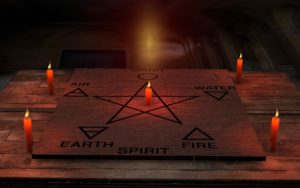 on this.) Heathenry has a limited amount of magic — we have seidr, we have runes, we have gods and giants, we have wights and other supernatural critters, we have berserkers and ulfhednar and whatnot. We have our own lore and magic that surrounds it. That being said, if you’re really looking for playing with magic a lot, you need to check out other pagan beliefs, most notably, Wiccan. It’s not that most Heathens wouldn’t welcome you into the fold; it’s just that you’ll be disappointed with Heathenry because we really don’t have what you’re looking for. Other pagan beliefs have more magical tendencies. The Heathen magic is usually communicating with wights and gods, being possessed by a supernatural entity, foretelling the future, wards, and making requests to entities in the form of blots. I’m not saying you can’t become powerful in your own right, but in many cases, you’ll find the magic somewhat lacking.
on this.) Heathenry has a limited amount of magic — we have seidr, we have runes, we have gods and giants, we have wights and other supernatural critters, we have berserkers and ulfhednar and whatnot. We have our own lore and magic that surrounds it. That being said, if you’re really looking for playing with magic a lot, you need to check out other pagan beliefs, most notably, Wiccan. It’s not that most Heathens wouldn’t welcome you into the fold; it’s just that you’ll be disappointed with Heathenry because we really don’t have what you’re looking for. Other pagan beliefs have more magical tendencies. The Heathen magic is usually communicating with wights and gods, being possessed by a supernatural entity, foretelling the future, wards, and making requests to entities in the form of blots. I’m not saying you can’t become powerful in your own right, but in many cases, you’ll find the magic somewhat lacking.



